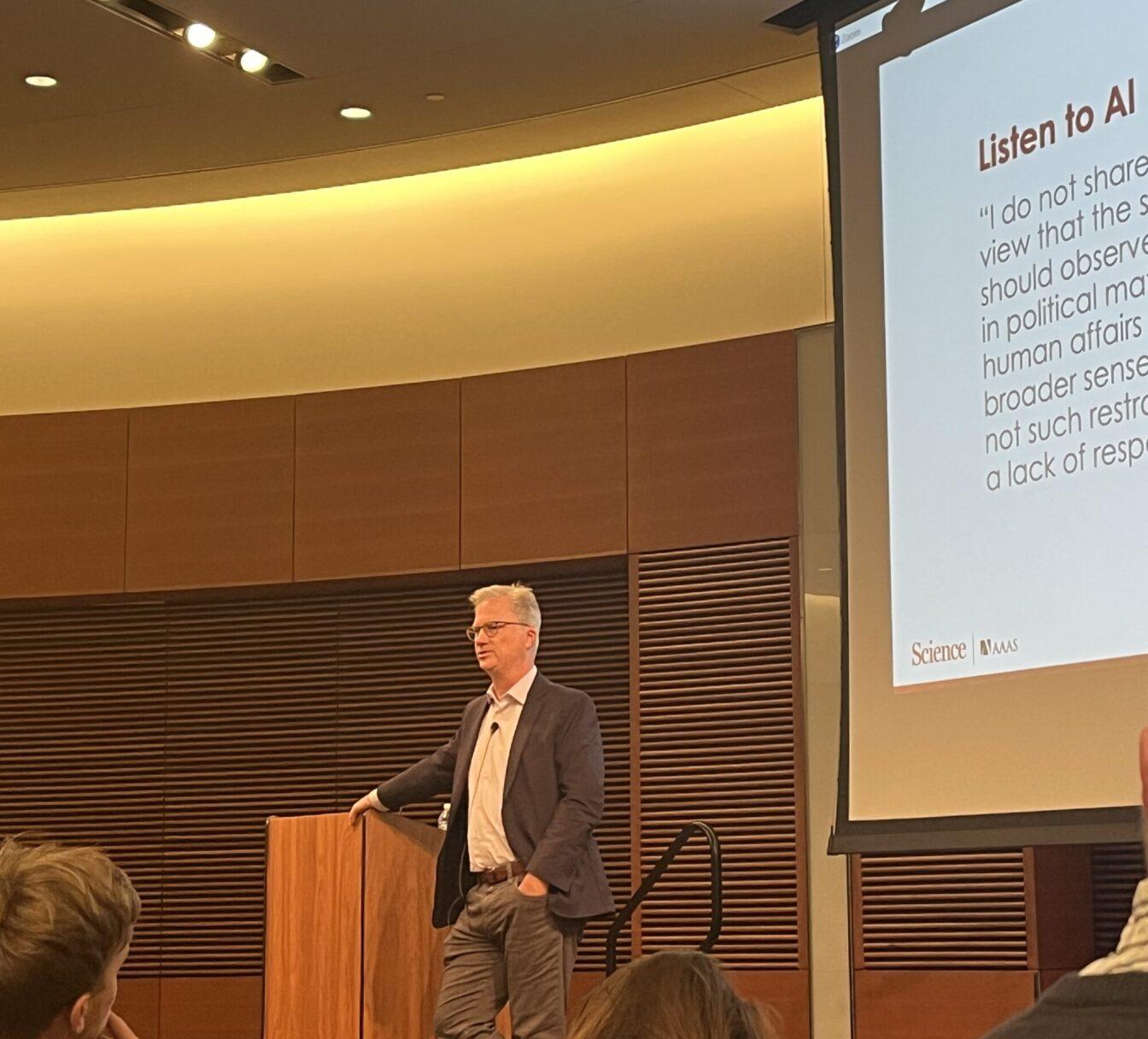Science editor-in-chief Holden Thorp presented Monday on “How Science Lost America and How to Get it Back.” The talk focused on the dynamic relationship and intertwining of science and politics and how scientists can recover from the loss.
Recently, science has been increasingly merging with the political sphere. Thorp said some people believe scientists should stick to the facts and leave politics to the politicians. Today, there is a partisan divide in what politicians think of scientific experts’ roles in policy issues.
One study referenced in Thorp’s talk shows the difference between Democrats and Republicans and the role they think scientists should take on regarding scientific issues and policy debates. The study found 55% of Republicans believe scientists should focus on establishing the facts, and 75% of Democrats believe scientists should take on an active role.
Such studies shed light on viewing scientists as separate from others, Thorp said. But this view of scientists being objective, unbiased and sticking only to the facts is not accurate.
Scientists taking a political stance is also not the reason for the divide, Thorp said, though it has enabled it. And science certainly has an important role in politics. This is an ideology that existed as early as Albert Einstein, who was involved with and advocated for both.
One of the reasons Thorp said America lost science is because scientists haven’t done a good job of explaining it.
“If you look at the pandemic, the research part we [scientists] did just fine,” Thorp said. “The part we didn’t do well was all of this other stuff — being great communicators, great teachers, science policy people.”
The current method of science education lacks complete history, leading to misunderstandings of what science is, Thorp said. It’s not Isaac Newton discovering gravity by getting hit in the head with an apple or a man getting into a bathtub and discovering buoyancy, nor is it an individual person, Thorp said.
Science is a social process requiring thousands of contributors and happens over a long time, Thorp said.
“I’m a lifelong educator, and I believe most people can learn things if they want to,” Thorp said. “So the reason people don’t know things is not because they don’t have the ability [to, but] because they [scientists] don’t have the interest in teaching them.”
Another misconception is that scientists are politicizing scientific issues. This is not true, Thorp said. Take cancer researchers, for example. Their line of work isn’t considered “politicized,” but those who work in climate change research are, though both researchers are using the same tools, principles, institutions and training.
Science’s loss of America now begs the question of how to get it back. One solution Thorp raised is teaching the history of science in college.
“Does it really matter in today’s world that you have eight [thermodynamics] courses or whatever it is to get a chemistry degree?” Thorp asked. “Or could we take a few of those out and tell people a little more about how science actually works, and about how it’s used and about politics of how it’s done?”
Thorp also said it’s important to remind people scientists are humans with flaws. They are privy to having political views and are subject to motivated reasoning. In the long run, the science will correct for these, Thorp said.


